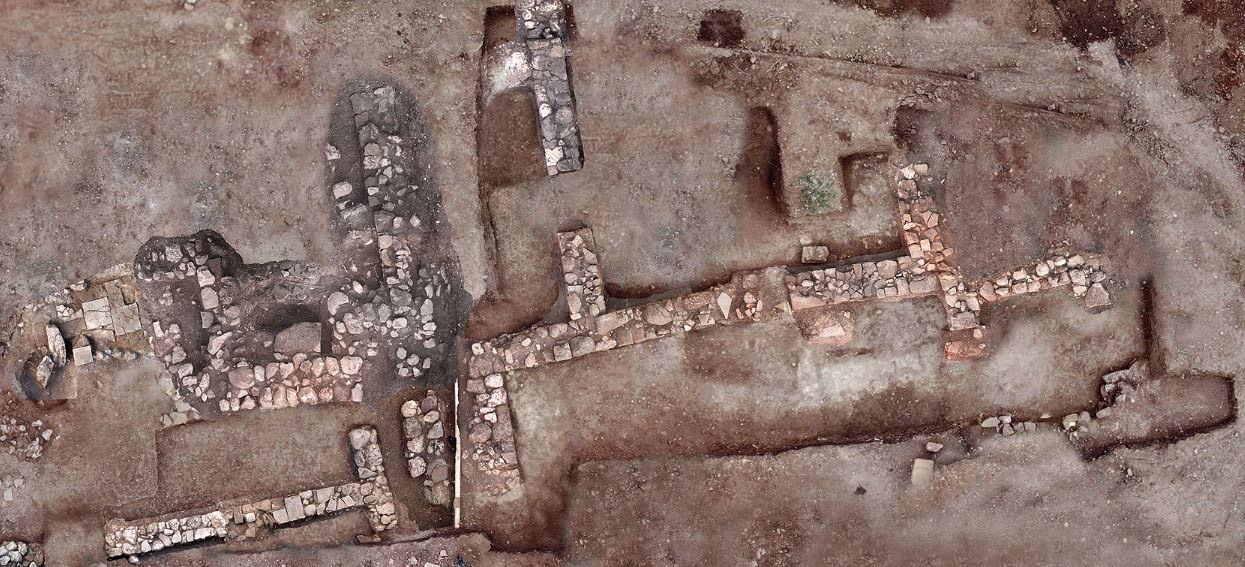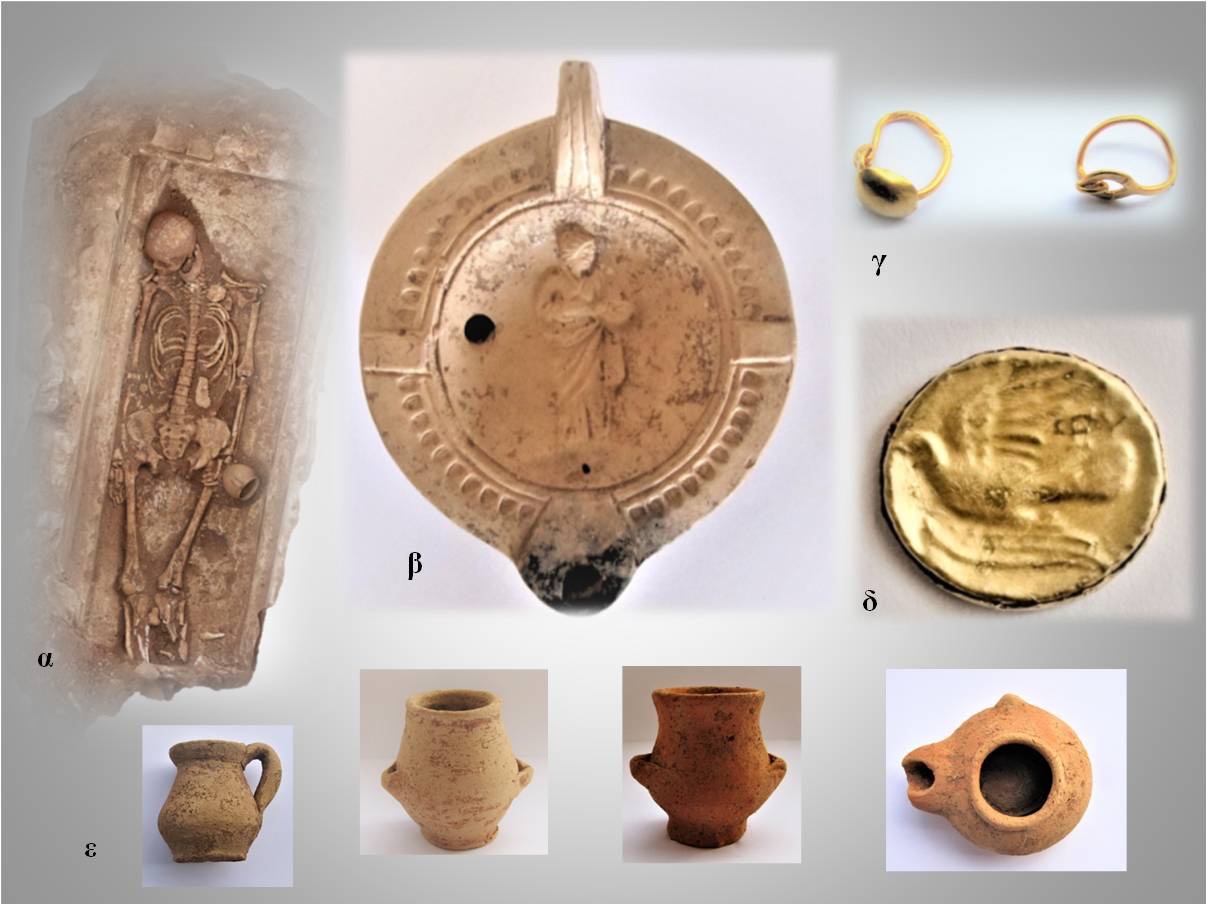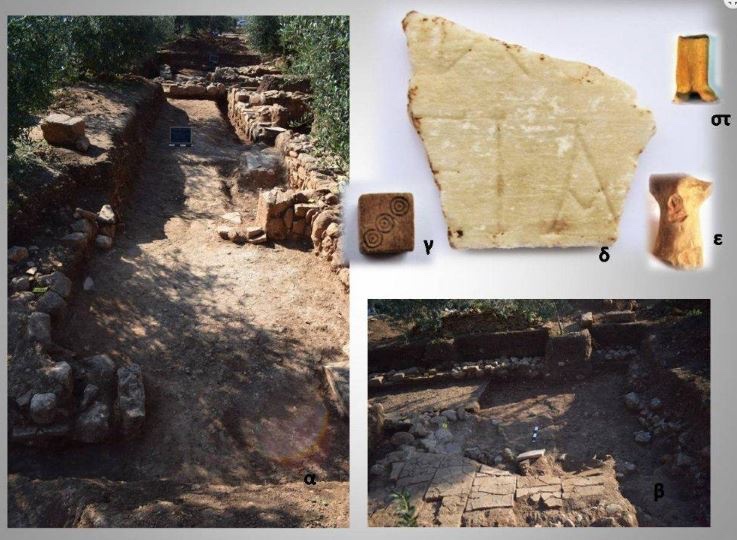Newly Uncovered Greek City May Be Legendary Home of 'Trojan War' Prisoners

Archaeologists have uncovered portions of the ancient Greek city of Tenea, whose residents claimed they were prisoners of the Trojan War, the Greek Ministry of Culture announced this week.
The uncovered parts of the city date back between 300 B.C. and A.D. 400.
Buildings from the town and part of a cemetery containing the burials of two men, five women (one of whom was buried with a child) and two children were uncovered. The burials contain a variety of grave goods, including jewelry made of bone, bronze and gold, as well as vases and coins. An iron ring bearing an image of the god Serapis, a deity revered in both Greece and Egypt, was also discovered in the cemetery.
Scholars have known the general location of Tenea since at least the 19th century — it is located near the modern-day village of Chiliomodi — but they have done little scientific excavation at the site. [The 25 Most Mysterious Archaeological Finds on Earth]

The ancient Greek historian Pausanias (who lived from A.D. 143 to 176) wrote that residents of Tenea believed that they were the descendants of Trojans who were taken prisoner during the Trojan War. That conflict (if it did occur) happened more than 3,000 years ago. Pausanias claimed that the people of the city honored "Apollo more than any other god" (translation by W.H.S. Jones and H.A. Ormerod). The recent excavations uncovered no remains dating back 3,000 years.
Roman prosperity and fall
Archaeologists tried to date, as accurately as they could, all the structures and artifacts they found at the site. The researchers used these dates to try to get a sense of how the city had changed over time.

Rome occupied much of Greece in 146 B.C., and Tenea was part of the Roman Empire for hundreds of years. Analysis of the archaeological remains suggests that Tenea experienced economic growth during the reign of the Roman Emperor Septimius Severus (reign A.D. 193-211), who came to power after winning a civil war.
Sign up for the Live Science daily newsletter now
Get the world’s most fascinating discoveries delivered straight to your inbox.
Tenea's prosperity, however, did not last. During the late fourth century, the number of artifacts seems to decline, and Tenea appears to have suffered after Alaricus, a Gothicking, raided the Peloponnese (the area of Greece in which Tenea is located) between A.D. 396 and 397, the archaeologists said in the statement. The researchers added that the city staggered on after this, and it may have been abandoned during the sixth century A.D.
Excavations at Tenea have been carried out since 2016 by a team of Greek archaeologists led by Elena Korka, an archaeologist with Greece's General Directorate of Antiquities and Cultural Heritage.
- In Photos: Amazing Ruins of the Ancient World
- Photos: Ancient Greek Burials Reveal Fear of the Dead
- In Photos: Ancient City Discovered in Iraq
Originally published on Live Science.

Owen Jarus is a regular contributor to Live Science who writes about archaeology and humans' past. He has also written for The Independent (UK), The Canadian Press (CP) and The Associated Press (AP), among others. Owen has a bachelor of arts degree from the University of Toronto and a journalism degree from Ryerson University.










